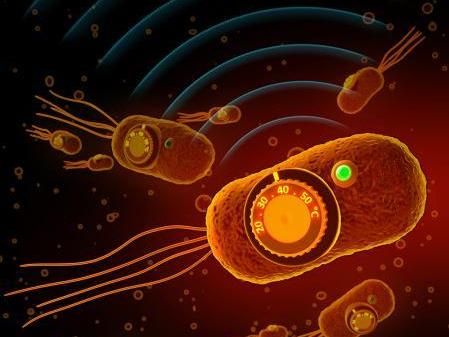Entry Prohibited for AIDS Viruses
Peptide triazole inhibitors disrupt cell-free HIV-1
The initial entry of HIV-1 into host cells remains a compelling yet elusive target for the development of agents to prevent infection, a critical need in the fight against the global AIDS epidemic. A collaborative research effort led by Irwin Chaiken at Drexel University and Drexel University College of Medicine (Philadelphia, PA, USA) has demonstrated that modified peptide triazole inhibitors which specifically target the HIV-1 envelope (Env) protein gp120 can physically disrupt virus particles in the absence of host cells, and the results are reported in ChemMedChem.
The Drexel team found that under conditions similar to those at which a newly designed peptide triazole (KR13) inhibits infection of host cells by an HIV-1 pseudovirus, it also causes virus rupture and release of an internal HIV-1 protein called gag p24 when incubated with virus alone. Both inhibition of cell infection and p24 release are enhanced substantially by the multivalent display of KR13 on gold nanoparticles. The novel antagonist design and reported characterization data could lead to the creation of a virucide to suppress initial HIV-1 infection, viremia in infected individuals, and the spread of infection between individuals. Such agents could be used for HIV-1 microbicides and therapeutics. These results also suggest that ligand-specific pathogen rupture may be possible for other viruses that contain metastable prefusion surface protein complexes, such as influenza, Ebola, and Dengue.
Original publication
Other news from the department science

Get the life science industry in your inbox
By submitting this form you agree that LUMITOS AG will send you the newsletter(s) selected above by email. Your data will not be passed on to third parties. Your data will be stored and processed in accordance with our data protection regulations. LUMITOS may contact you by email for the purpose of advertising or market and opinion surveys. You can revoke your consent at any time without giving reasons to LUMITOS AG, Ernst-Augustin-Str. 2, 12489 Berlin, Germany or by e-mail at revoke@lumitos.com with effect for the future. In addition, each email contains a link to unsubscribe from the corresponding newsletter.
Most read news
More news from our other portals
Last viewed contents
Category:Mitochondrial_diseases
Category:Cat_diseases

BeNano Serie | 3P INSTRUMENTS
Childhood_disintegrative_disorder

Biologists give bacteria thermostat controls - Applications in novel therapeutics for cancer and other diseases
Anorgasmia






















































